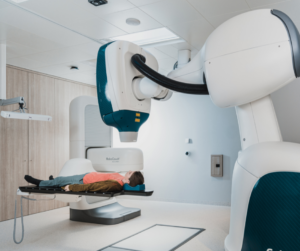The Oncology Connection
In 2017, Stanford Health Care’s advanced practice provider (APP) turnover rate was 18.1%, which was 50% higher than the national average of 12%. Following the implementation of system-wide interventions to increase APPs’ professional fulfillment, Stanford’s turnover was reduced to 8.2%, lower than the national average of 9%.
To better understand the drivers behind their high APP turnover rate, Clair Kuriakose, MBA, PA-C, FACHE, executive director of advanced practice at Stanford Health Care, and her coauthors partnered with Stanford’s wellness team, renowned for its work on physician burnout. To begin, they developed the APP Wellness Survey—based on the Stanford Professional Fulfillment Index—with 3 metrics in mind: professional fulfillment, burnout, and intent to leave the organization.

Conducted in 2017, the first survey found that only 37% of respondents indicated they had professional fulfillment, 30% indicated they had burnout, and 40% reported a moderate or higher likelihood of leaving Stanford within 2 years.
An analysis of the survey findings revealed that APPs who said they have sufficient time to pursue professional development activities had higher levels of professional fulfillment and lower odds of intent to leave Stanford. Another important finding was that APPs who reported to APPs rated the quality of leadership higher than APPs who reported to non-APP supervisors.
In response to the survey, Stanford Health Care and its Center for Advanced Practice (CAP) developed a holistic organizational strategy to improve the work environment for APPs. CAP developed programs, spearheaded initiatives, and introduced institutional changes focusing on leadership support, top-of-licensure practice, professional fulfillment, role clarity, and personal resilience. The initiatives were described in a recent article in NEJM Catalyst Innovations in Health Care Delivery.
Leadership Support
According to Kuriakose, the APP workforce had grown rapidly and organically without the infrastructure to support the APPs within the organization. To strengthen APP leadership support and structure, strategic system-wide initiatives were introduced including restructuring organizational reporting with more APPs integrated into formal leadership roles, APP representation on organization-wide committees and councils, and supporting APP transitions into leadership.
“In our wellness study we found that APPs reporting directly to APPs were more likely to be professionally fulfilled,” Kuriakose said, as those who reported to APPs had a higher rating of the quality of their leadership. “Having a leader who is an APP, who fully understands the complexities and intricacies of the role, can elevate the practice and overall optimization of the role within the care team. These leaders can share relevant information with senior leadership to help advocate for the APP to be utilized appropriately, as well as other critical insights that contribute to their fulfillment and retention,” Kuriakose said.
Top-of-Licensure Practice
The survey found that one of the primary reasons for APPs turnover was because they were not able to practice to the top of their license. “During the initial stages of your career as an APP there may be a significant amount of on-the-job training that occurs depending on specialty. As APPs become comfortable and versed in their specialty, they want to further their contributions to the care team by improving access and working at top of license.,” Kuriakose said.
CAP began quantifying the billable and nonbillable activities that APPs perform as part of their role. This information was used to develop APP scorecards, which led to the creation of an APP dashboard to highlight the value and contributions of APPs and increase the visibility of APP utilization across Stanford.
Professional Fulfillment
CAP established the Professional Excellence Program, which enables APPs to apply for protected time to dedicate toward professional development activities, such as research, quality improvement projects, publishing, and podium presentations at both local and national conferences. APP-specific scholarships are awarded each year to provide financial support for professional development activities.
Role Clarity
The survey found that lack of role clarity contributed to APP job dissatisfaction and intent to leave the organization. To promote role clarity, CAP worked to standardize the role and expectations of an APP to promote effective utilization. Organization-wide educational sessions clarified the APP scope of practice, and the APP role was defined in 8 different subspecialties and optimized within the teams to improve patient access.
Personal Resilience
Since higher levels of self-compassion were associated with lower odds of burnout and intent to leave the organization within 2 years, CAP created interventions designed to cultivate personal resilience among APPs. Kuriakose said the amount of stress all health care workers have experienced with the pandemic and the various ongoing pressures has made self-compassion very difficult. “Our APPs are fully dedicated to our patients with safety and quality of care as their top priority. This level of dedication sometimes makes self-compassion hard to practice. Organizations have a responsibility in creating a supportive and sustainable environment for our healthcare teams,” she said.
2020 Survey Results
APPs were resurveyed in 2020 to determine the impact of the organizational response and changes that were implemented based on the 2017 survey findings. Within 3 years, changes guided by the survey results led to increased APP professional fulfillment, decreased burnout, and reduced turnover.
Teams participating in the effective utilization initiative experienced a 17% increase in APP clinical visits without the need for additional APP positions. Kuriakose attributed the increase in productivity to having role clarity conversations and empowering APPs to utilize their training and scope of practice to contribute to direct patient care. “APPs want to see and provide care for patients,” she said. “That’s a key driver in professional fulfillment for APPs.”
Today Kuriakose oversees a 700-plus APP workforce of nurse practitioners, physician assistants, clinical nurse specialists, and certified nurse anesthetists (midwives are employed by Lucile Packard Children’s Hospital Stanford) including approximately 150 APPs specializing in oncology. She believes Stanford Health Care’s work to promote professional fulfillment among APPs can be applied by other organizations to enhance their APP workforce and increase APP retention.
When they resurvey, either at the end of 2023 or the beginning of 2024, she said they will seek to understand the impact of the COVID-19 pandemic on the clinical workforce and their overall strategy.
For more information
Nandwani, M., Blacker, A., Shanafelt, T.D., Harshman, J., Kuriakose, C. (2022). Promoting professional fulfillment for advanced practice providers. NEJM Catalyst Innovations in Care Delivery, (3)10.






